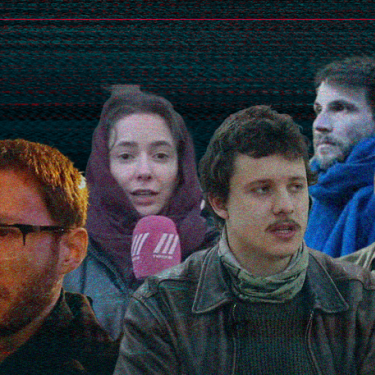Georgia quietly denying entry to independent Russian journalists

Since Russia launched its invasion of Ukraine in February 2022, at least 11 independent Russian journalists have been denied entry to Georgia for no good reason. Suspecting
pressure from Russia, Reporters Without Borders (RSF) calls on Georgia to explain these decisions and to put a stop to this practice.
The victims include Aleksandra Shvedchenka, the Georgia correspondent of the Russian exile TV channel Dozhd (TV Rain), who was denied entry to Georgia – where she has lived for nearly a year – when she landed at Tbilisi’s international airport on 14 March after a vacation in Latvia.
After being made to wait for 15 minutes at customs, officials told her that she was being refused entry and should take the next plane back to Riga. “On the document they gave me, it was written that the reason for refusal was ‘other reason envisaged by Georgian legislation,’ with no further precision,” she told RSF.
Her case is not isolated. RSF is aware of at least 10 other Russian exile journalists being denied entry without justification since Russia invaded Ukraine. Some had been living and working in Georgia without any problem for months.
They include Filip Dziadko, who had been living in Georgia for a year with his family. When he landed in Tbilisi on 19 February, officials detained him overnight at the airport on arrival (officially because of a breakdown in the system), then they confiscated his phone and finally they denied him entry.
Aleksei Ponomaryov, podcast editor at the independent media outlet Kholod, had been renting an apartment with his wife in Tbilisi for several months before being denied entry for no apparent reason on 10 December on his return from a conference in Oslo.
“This visibly astonished even the border guards,” he told Ekho Kavkaza, referring to a probable list of undesirable persons. When contacted by RSF, deputy interior minister Aleksandr Darakhvelidze had no explanation for why these journalists were turned away.
“For the many Russian journalists fleeing their country’s totalitarian decline, Georgia has long been a land of asylum,” said Jeanne Cavelier, the head of RSF’s Eastern Europe and Central Asia desk. “These unjustified denial of entry decisions – with terrible consequences for the journalists concerned, who are condemned yet again to rebuild their lives – reflect the harder line being taken by the Georgian government towards independent media. We call on the government and its prime minister, Irakli Garibashvili, to explain these decisions, to resist any pressure from the Russian authorities, and to resume a policy of welcoming all Russian journalists who are forced to flee their country.
Most of the journalists and activists who are victims of this practice are stopped at customs without any explanation from the border police, sometimes for several hours, until they are finally notified that they are being denied entry, says the Georgian Young Lawyers Association (GYLA) in a report entitled “Obstacles to border crossing” that it is soon to be published
This practice is contrary to UN Refugee Agency recommendations. Under Georgian law, those who are denied entry for “other reason envisaged by Georgian legislation” have the right to appeal but they are rarely told this, according to the GYLA report. Anyone denied entry for this reason has 10 working days to file an appeal. This is too short, the GYLA report says, given all the steps that must be taken in order to submit an appeal, although legal aid is available from local organisations such as Rights Georgia.
Located in the Caucasus region and bordering Russia, Georgia has received nearly 100,000 Russian citizens since the start of the war in Ukraine. The war is a highly sensitive subject in Georgia, which has two separatist regions under Russian influence.
The recent tension over a “foreign agents” bill based on a Russian law that is used to gag independent media and civil society in Russia highlighted the differences between a government that seems to be drawing closer to Moscow and a population that, for the most part, seeks a European future.
